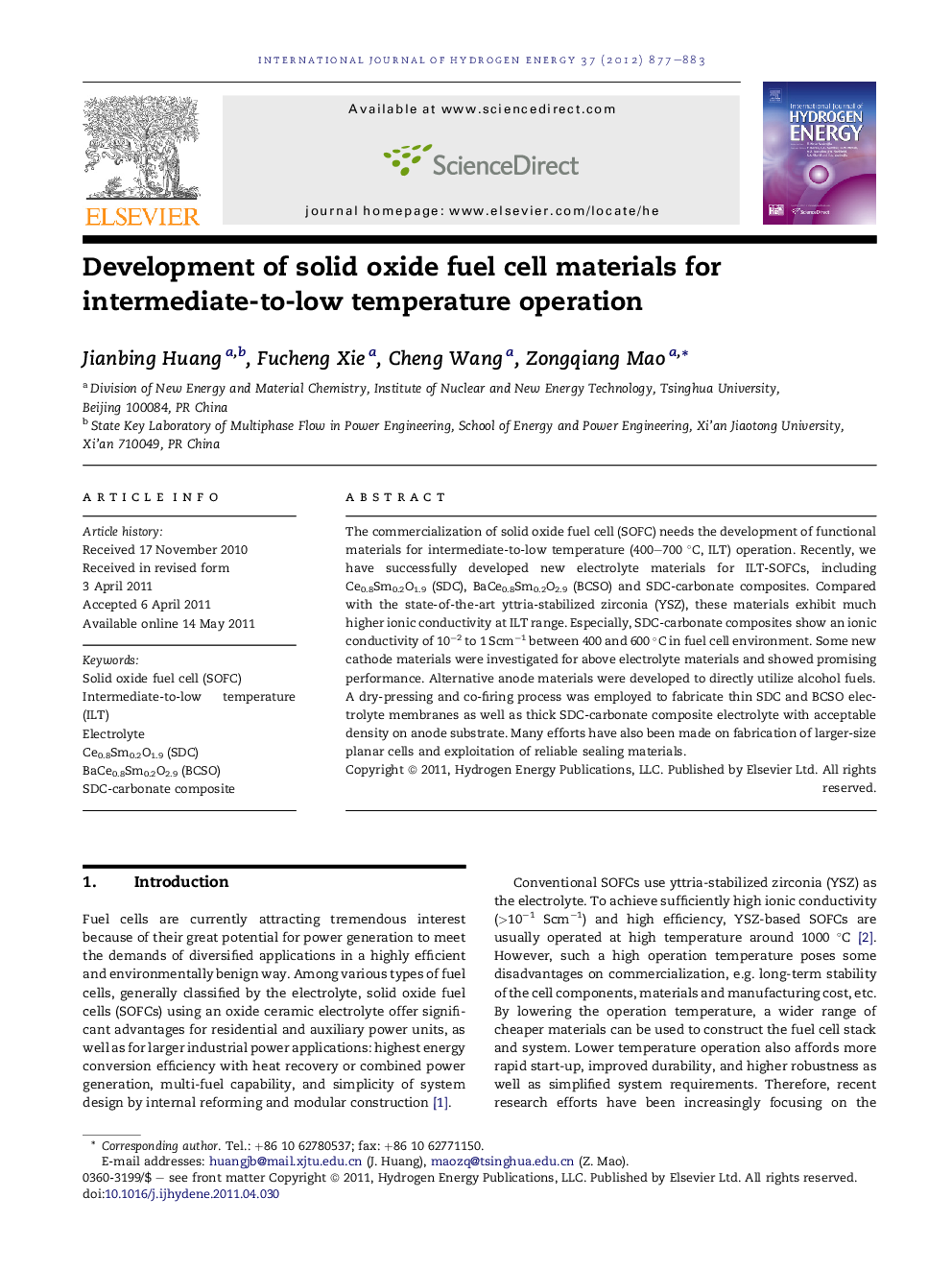| کد مقاله | کد نشریه | سال انتشار | مقاله انگلیسی | نسخه تمام متن |
|---|---|---|---|---|
| 1277212 | 1497568 | 2012 | 7 صفحه PDF | دانلود رایگان |

The commercialization of solid oxide fuel cell (SOFC) needs the development of functional materials for intermediate-to-low temperature (400–700 °C, ILT) operation. Recently, we have successfully developed new electrolyte materials for ILT-SOFCs, including Ce0.8Sm0.2O1.9 (SDC), BaCe0.8Sm0.2O2.9 (BCSO) and SDC-carbonate composites. Compared with the state-of-the-art yttria-stabilized zirconia (YSZ), these materials exhibit much higher ionic conductivity at ILT range. Especially, SDC-carbonate composites show an ionic conductivity of 10−2 to 1 Scm−1 between 400 and 600 °C in fuel cell environment. Some new cathode materials were investigated for above electrolyte materials and showed promising performance. Alternative anode materials were developed to directly utilize alcohol fuels. A dry-pressing and co-firing process was employed to fabricate thin SDC and BCSO electrolyte membranes as well as thick SDC-carbonate composite electrolyte with acceptable density on anode substrate. Many efforts have also been made on fabrication of larger-size planar cells and exploitation of reliable sealing materials.
► Advances in the development of ILT-SOFC materials in our lab were reviewed.
► Compatible cathode materials were developed for IT-SOFCs based on SDC electrolyte.
► Thin-film BSCO electrolyte IT-SOFC was fabricated and demonstrated stable output.
► SDC-carbonate composite electrolytes exhibited co-ion or pure proton conduction.
► The composite electrolyte LT-SOFCs showed high performance and good stability.
Journal: International Journal of Hydrogen Energy - Volume 37, Issue 1, January 2012, Pages 877–883